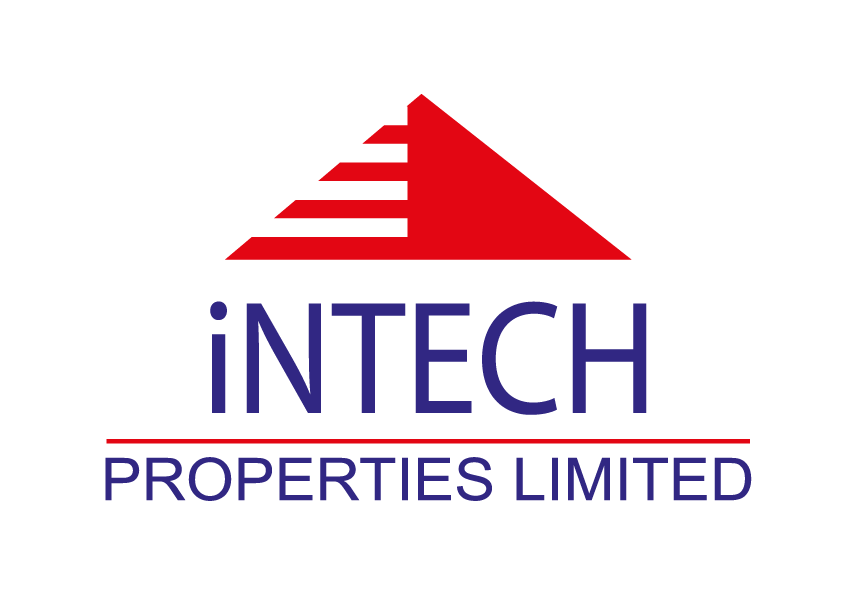Islami Bank Home Loan Process: A Comprehensive Guide
Owning a home is one of the most significant milestones in a person’s life. It provides not only a place for shelter but also a sense of security and accomplishment. For many, the road to homeownership may seem like a challenging journey, especially when financial resources are limited. Islamic banks, which operate in accordance with Shariah principles, offer home financing solutions in Bangladesh that cater to the needs of those who seek a home while adhering to Islamic principles. In this guide, we will explore the Islami Bank Home Loan Process in detail, discussing the key aspects, benefits, eligibility criteria, and important considerations that every prospective homeowner should know.
1. What Is an Islami Bank Home Loan?
An Islami Bank Home Loan, also known as Islamic Home Financing, operates on the principles of Shariah law, which prohibits the payment or receipt of interest (riba). Unlike conventional loans where interest is charged on the borrowed amount, Islamic home financing works through different financial structures like Murabaha, Ijara, or Musharakah. These structures ensure that the bank earns profit by participating in the process rather than merely charging interest.
The primary objective of Islami home financing is to provide homebuyers with the means to purchase or construct a home while maintaining their ethical and religious beliefs. In these contracts, the bank and the buyer engage in a partnership where the bank either purchases the property and resells it at a profit, leases it, or shares ownership until the loan is repaid.
Overview of Islami Bank Home Loan Procedures:
- Choose Financing Structure: Select from Murabaha, Ijara, or Musharakah options.
- Apply for Financing: Submit your application with personal and financial details.
- Income Verification: Bank checks your income for loan eligibility.
- Credit History Check: Evaluate your credit history for financial reliability.
- Property Appraisal: Bank appraises property for market value and security.
- Loan Approval: Bank approves your loan based on financial criteria.
- Agreement Signing: Finalize loan terms including profit rates and schedule.
- Property Purchase or Construction: Bank facilitates purchase or construction.
- Repayment Process: Follow payment schedule based on chosen financing structure.
- Ownership Transfer: Ownership transferred after repayment or lease completion.
2. How Does the Islami Bank Home Loan Process Work?
The process of obtaining a home loan from an Islamic bank involves several steps that are designed to align with Islamic principles. Below is a step-by-step breakdown of how the Islami Bank Home Loan Process works:
Step 1: Choose the Type of Financing Structure
Islami banks offer different types of financing structures based on Shariah principles. The most common options are:
-
Murabaha (Cost-Plus Financing): In this arrangement, the bank purchases the property and sells it to the customer at a higher price. The markup represents the bank’s profit. The buyer repays the total amount over an agreed period in installments.
-
Ijara (Leasing): Here, the bank buys the property and leases it to the customer. The customer makes rental payments to the bank until they either own the property or have the option to purchase it at the end of the lease term.
-
Musharakah (Partnership or Diminishing Musharakah): This is a partnership between the bank and the customer. Both parties contribute to purchasing the property. The customer gradually buys out the bank’s share over time through installment payments, eventually becoming the sole owner of the property.
Once you decide on the financing structure, you can proceed with the application process.
Step 2: Apply for Financing For Home With Islami Bank Bangladesh Ltd
To apply for a home loan, you will need to visit the Islamic bank’s branch or access their online portal, where you can fill out the loan application form. During this process, you will be required to provide the following information:
- Personal information (name, address, contact details)
- Employment details
- Income proof (salary slips, bank statements, etc.)
- Property details (if you have already identified the property)
- Credit history
Step 3: Bank’s Evaluation Process
After receiving your application, the bank will review your financial situation to assess your eligibility for the loan. This evaluation will involve:
-
Income Verification: The bank will check whether your income is sufficient to cover the loan installments without straining your finances. They will verify your employment status, salary, and other sources of income.
-
Credit History: While Islamic banks follow Shariah principles, they still assess your credit history to ensure that you have a good track record of managing debt. Having outstanding loans or a poor credit history could affect your eligibility.
-
Property Appraisal: The bank may conduct an appraisal of the property you intend to purchase or construct to determine its market value. This helps ensure that the bank’s investment is secure.
Step 4: Approval and Terms Agreement
If the bank finds that you meet their criteria, your loan application will be approved. At this stage, the bank will present you with the loan agreement, which outlines:
- The total amount of financing
- The financing period (usually up to 15-20 years)
- The profit rate or lease amount (depending on the financing structure)
- The payment schedule (monthly or quarterly installments)
Once you agree to the terms, the loan process moves to the next phase.
Step 5: Property Purchase or Construction
The final step of the Islami Bank Home Loan Process involves either purchasing the property (in the case of a ready-made home or apartment) or starting the construction process. Depending on the financing structure, the bank will take one of the following actions:
-
Murabaha: The bank purchases the property on your behalf and transfers ownership to you after you start repaying the loan.
-
Ijara: The bank acquires the property and leases it to you. You will make rental payments until the end of the lease term, after which ownership may be transferred to you.
-
Musharakah: You and the bank co-own the property, and you gradually buy out the bank’s share through regular payments.
Once the property is purchased or construction begins, you will be responsible for making timely payments based on the agreed schedule.
3. Benefits of Islami Bank Home Financing
There are several advantages to choosing an Islamic bank for home financing, particularly if you want to adhere to Islamic principles:
1. Interest-Free Financing
One of the primary benefits of Islamic home financing is that it is interest-free. Instead of charging interest on the borrowed amount, the bank earns profit through other Shariah-compliant methods, such as selling the property at a markup or leasing it to the customer. This eliminates the ethical concerns surrounding conventional interest-based loans.
2. Ethical and Transparent
Islamic banking is built on ethical principles, meaning that transactions are carried out in a transparent and fair manner. The terms of the financing agreement are clearly outlined, and the customer knows exactly how much they will be paying and for what period.
3. Risk-Sharing
In structures like Musharakah, the bank and the customer share the risks associated with the property. This partnership model ensures that the customer does not bear all the financial risks, providing a more balanced approach to homeownership.
4. Flexible Repayment Plans
Islami banks typically offer flexible repayment plans that cater to the individual’s financial situation. For instance, the customer can negotiate the installment amounts and the financing period to ensure that it aligns with their income and expenses.
5. Shariah Compliance
For individuals who wish to align their financial decisions with Islamic beliefs, Islami home financing offers a Shariah-compliant solution. This allows customers to fulfill their dream of owning a home without compromising on their religious values.
4. Eligibility Criteria for Islami Bank Home Loans
To qualify for an Islami home loan, you must meet certain eligibility criteria. While specific requirements may vary between banks, the general conditions include:
-
Age: Most banks require applicants to be between 18 and 65 years old.
-
Employment Status: You must have a stable source of income, whether you are a salaried employee or a business owner. The bank will evaluate your ability to repay the loan based on your income level.
-
Creditworthiness: Although Islamic banks do not operate on interest, they still assess your creditworthiness to ensure that you have the financial capacity to repay the loan. A good credit history improves your chances of approval.
-
Property Documentation: If you are purchasing a property, you will need to provide all the necessary documentation, such as the property’s title deed, sales agreement, and valuation report.
5. Islami Bank Home Loan Documents Required
When applying for a home loan from an Islamic bank, you will need to submit various documents to support your application. The following is a list of the typical documents required:
-
Personal Identification: National ID card, passport, or other government-issued identification.
-
Income Proof: Salary slips, bank statements, tax returns, or business income records.
-
Property Details: Title deed, property sales agreement, construction permits (if applicable).
-
Guarantor’s Information: Some banks may require a guarantor who will be responsible for the loan if you default on payments.
-
Other Documents: Depending on the bank’s requirements, you may need to provide additional documents, such as your employment contract, financial statements, or other relevant paperwork.
6. Important Considerations Before Applying for an Islami Bank Home Loan
Before proceeding with an Islamic bank home loan, there are several factors you should consider:
1. Understand the Financing Structure
Each Islami bank offers different types of home financing, so it’s essential to understand how the specific structure works. Whether you choose Murabaha, Ijara, or Musharakah, ensure that you are comfortable with the terms and conditions.
2. Repayment Plan
Review the repayment plan carefully to ensure that it aligns with your financial situation. Consider the installment amounts, payment schedule, and loan term to avoid overburdening yourself financially.
3. Hidden Fees
While Islami banks operate on ethical principles, there may still be additional fees involved, such as processing fees, administrative charges, or early repayment penalties. Make sure to clarify all costs with the bank before signing the agreement.
4. Shariah Compliance Certification
Verify that the bank is Shariah-compliant by checking whether it has certification from a recognized Islami finance board. This ensures
Frequently Asked Questions (FAQ) about Islami Bank Home Loan Process
1. What is an Islami Bank Home Loan?
An Islami Bank Home Loan, also known as Islamic home financing, is a Shariah-compliant way of financing a property purchase. It avoids charging interest (riba), which is prohibited in Islamic law, and instead uses profit-sharing, leasing, or markup structures such as Murabaha, Ijara, and Musharakah.
2. How is an Islamic home loan different from a conventional home loan?
The main difference is that Islamic home loans do not involve interest. Conventional loans charge interest on the borrowed amount, while Islamic loans use profit or rental agreements. For example, the bank may purchase the property and sell it at a profit or lease it to you.
3. What are the different types of Islamic home financing structures?
- Murabaha (Cost-Plus Financing): The bank buys the property and sells it to you at a higher price, which includes their profit.
- Ijara (Leasing): The bank leases the property to you, and you make rental payments until you can purchase the property.
- Musharakah (Diminishing Partnership): You and the bank jointly own the property, and you gradually buy the bank’s share over time.
4. Who is eligible for an Islami Bank Home Loan?
Eligibility criteria generally include:
- Being at least 18 years old
- Having a stable income source
- Having a good credit history
- Being able to provide documentation related to the property and your finances
5. What documents are required to apply for an Islamic home loan?
The typical documents needed include:
- Personal identification (passport, national ID)
- Proof of income (salary slips, bank statements)
- Property-related documents (title deed, sales agreement)
- Additional documents like guarantor information (if required)
6. Can non-Muslims apply for an Islamic home loan?
Yes, Islamic banks typically offer their services to anyone, regardless of religious background, as long as the applicant agrees to the Shariah-compliant terms and conditions.
7. What are the benefits of choosing Islamic home financing over a conventional loan?
Key benefits include:
- Ethical, interest-free financing
- Transparent and fair terms
- Risk-sharing between the bank and customer
- Flexible repayment options
- Shariah compliance for those seeking to align with Islamic principles
8. What is Murabaha in Islamic home financing?
Murabaha is a financing structure where the bank purchases a property and sells it to you at a marked-up price. The markup is the bank’s profit, and you repay the total amount (including profit) in installments.
9. What is Ijara in Islamic home financing?
Ijara is a leasing arrangement where the bank buys the property and leases it to you. You pay rent to the bank, and at the end of the lease term, you may have the option to purchase the property.
10. What is Musharakah in Islamic home financing?
Musharakah (or Diminishing Musharakah) is a partnership between you and the bank. You co-own the property, and you gradually buy the bank’s share until you become the sole owner.
11. How long does the Islamic home loan approval process take?
The approval process can vary depending on the bank and the complexity of the application. Generally, it can take anywhere from a few weeks to a couple of months, depending on the documentation and property evaluation.
12. Are there any additional fees involved in Islamic home financing?
Yes, while interest is not charged, there may still be fees such as processing fees, administrative costs, property evaluation charges, and in some cases, penalties for early repayment.
13. How are repayments structured in Islamic home financing?
Repayments depend on the financing structure chosen:
- Murabaha: You repay the bank through fixed installments over a defined period.
- Ijara: You make regular rental payments until the lease ends or you choose to buy the property.
- Musharakah: You make installment payments that gradually increase your ownership share of the property.
14. Can I repay my Islamic home loan early?
Many Islamic banks allow early repayment; however, some may charge an early settlement fee. It’s important to check the loan agreement to understand the terms related to early repayment.
15. How does the profit rate in Islamic home loans compare to interest rates in conventional loans?
The profit rate in Islamic home loans may be similar to conventional interest rates, but the structure is different. Instead of charging interest, the bank earns profit through the sale or lease of the property.
16. What happens if I default on an Islamic home loan?
If you fail to make payments, the bank may take legal action similar to what happens with conventional loans. In some cases, the property may be repossessed, depending on the terms of the financing contract.
17. Is it mandatory to have a guarantor for an Islamic home loan?
It depends on the bank’s policies. Some banks may require a guarantor, especially if the applicant’s credit history or income stability is not strong.
18. Can I apply for an Islamic home loan for a house under construction?
Yes, many Islamic banks offer financing for properties that are under construction. The bank may release funds in stages as the construction progresses, depending on the terms agreed upon.
19. Can I apply for Islamic home financing if I already have a mortgage with a conventional bank?
Yes, some Islamic banks offer refinancing options, where they buy out your existing mortgage from a conventional bank and replace it with a Shariah-compliant home financing solution.
20. What is the maximum loan tenure in Islamic home financing?
The maximum tenure for Islamic home financing varies by bank but typically ranges between 15 to 30 years. Longer tenures usually result in smaller monthly installments but a higher overall payment.
21. How much financing can I get through an Islamic home loan?
The amount of financing you can receive depends on factors like your income, the value of the property, and the bank’s policies. Most Islamic banks offer financing for up to 80-90% of the property’s value.
22. What happens if property prices change during the repayment period?
Fluctuations in property prices do not typically affect the terms of your financing agreement, as the profit rate or rent payments are fixed based on the initial contract. However, in some Musharakah contracts, the price may be renegotiated under certain conditions.
23. Is Islamic home financing available for investment properties?
Yes, Islamic banks often provide home financing for investment properties, allowing customers to purchase residential or commercial properties for rental income purposes. The terms, however, may differ from financing for personal residential use.
24. Can I use Islamic home financing for renovations?
Yes, many Islamic banks offer home improvement or renovation financing that follows the same Shariah-compliant principles. Depending on the financing structure, the bank may lease or partner with you during the renovation process.
25. Is Islamic home financing more expensive than conventional loans?
Islamic home financing is not necessarily more expensive than conventional loans. The total cost depends on various factors, including the profit rate, the financing structure, the repayment term, and additional fees. However, it provides an interest-free alternative for those who wish to follow Islamic principles.
Please note:
- This information is subject to change. Before taking out a loan, check the latest details on the Islami Bank website or visit any branch.
- This information should not be considered legal advice. Consult with a lawyer before proceeding with a loan.
For more information:
- Islami Bank website: https://www.islamibankbd.com/




